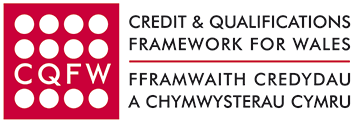| 1. |
Understand the legislative framework for the use of medication in social care settings. |
|
| 1.1 | Identify legislation that governs the use of medication in social care settings. | | 1.2 | Outline the legal classification system for medication. | | 1.3 | Explain how and why policies and procedures or agreed ways of working must reflect and incorporate legislative requirements. |
|
| 2. |
Know about common types of medication and their use. |
|
| 2.1 | Identify common types of medication. | | 2.2 | List conditions for which each type of medication may be prescribe. | | 2.3 | Describe changes to an individual’s physical or mental well-being that may indicate an adverse reaction to a medication. |
|
| 3. |
Understand roles and responsibilities in the use of medication in social care settings. |
|
| 3.1 | Describe the roles and responsibilities of those involved in prescribing, dispensing and supporting use of medication. | | 3.2 | Explain where responsibilities lie in relation to use of ‘over the counter’ remedies and supplements. |
|
| 4. |
Understand techniques for administering medication. |
|
| 4.1 | Describe the routes by which medication can be administered. | | 4.2 | Describe different forms in which medication may be presented. | | 4.3 | Describe materials and equipment that can assist in administering medication. |
|
| 5. |
Be able to receive, store and dispose of medication supplies safely. |
|
| 5.1 | Demonstrate how to receive supplies of medication in line with agreed ways of working. | | 5.2 | Demonstrate how to store medication safely. | | 5.3 | Demonstrate how to dispose of un-used or unwanted medication safely. |
|
| 6. |
Know how to promote the rights of the individual when managing medication. |
|
| 6.1 | Explain the importance of the following principles in the use of medication
• consent
• self-medication or active participation
• dignity and privacy
• confidentiality. | | 6.2 | Explain how risk assessment can be used to promote an individual’s independence in managing medication. | | 6.3 | Describe how ethical issues that may arise over the use of medication can be addressed. |
|
| 7. |
Be able to support use of medication. |
|
| 7.1 | Demonstrate how to access information about an individual’s medication. | | 7.2 | Demonstrate how to support an individual to use medication in ways that promote hygiene, safety, dignity and active participation. | | 7.3 | Demonstrate strategies to ensure that medication is used or administered correctly. | | 7.4 | Demonstrate how to address any practical difficulties that may arise when medication is used. | | 7.5 | Demonstrate how and when to access further information or support about the use of medication. |
|
| 8. |
Be able to record and report on use of medication. |
|
| 8.1 | Demonstrate how to record use of medication and any changes in an individual associated with it. | | 8.2 | Demonstrate how to report on use of medication and problems associated with medication, in line with agreed ways of working. |
|
